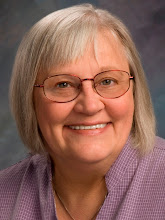I'm well aware that the major-parties' faithful pretty much resent independents. We're necessary evils in that we're necessary to get their candidates elected and evil because we're just as likely to get the other party's candidates elected. Why they don't make it easier for us to vote in their primaries is truly bewildering. You'd think they'd pay a little more attention to the "necessary" part.
Some states have open primaries, which means you don't have to declare yourself to be a Republican to vote in the GOP primary, for instance. Others allow you to be, say, a Democrat for a day, or a month, or a quarter in order to vote in the Democratic primary. Others shut you out of the process entirely if you're an independent.
I'm an advocate of open primaries, but not because I want to vote in the major-parties' primaries. Neither is it because some states force us to be dishonest by declaring ourselves to be something we're not just to vote in the primary. Nor is it because I think it's unfair that we're shut out.
No. My reasons are none of the above. I have one, and only one, reason: We all help pay for the primaries. For that reason alone, every registered voter should be allowed unrestricted access to the primary process. As Michael Bloomberg recently pointed out, not only are we excluded, but also we're forced to pay for primaries while the parties do all they can to keep independent and third-party candidates out of both the primaries and the general election.
The Colorado primaries were held yesterday, and my interest level in the results is directly in proportion to my participation level. Which was zilch, because I'm an independent.
Oh, there was one point of interest: Doug Bruce lost. He got promoted to the state legislature last year when the El Paso county commission could no longer abide his antics. And his antics have been legion. He often disrupted the proceedings and was called everything from a slumlord (property he owns really was disgusting) to a sociopath. He raised a stink even before he was sworn in to the legislature because he didn't like the way he was to be sworn in, and later that day he kicked, or in some way assaulted, a news photographer. He was once ordered to leave the state house podium for calling Colorado's Mexican labor force "illiterate peasants" and was booted off the military affairs committee for refusing to vote in favor of a resolution honoring...um...military veterans.
I guess it was a good day after all. Even if I did have to stay home.
The Worst Blogger of 2008
16 years ago



